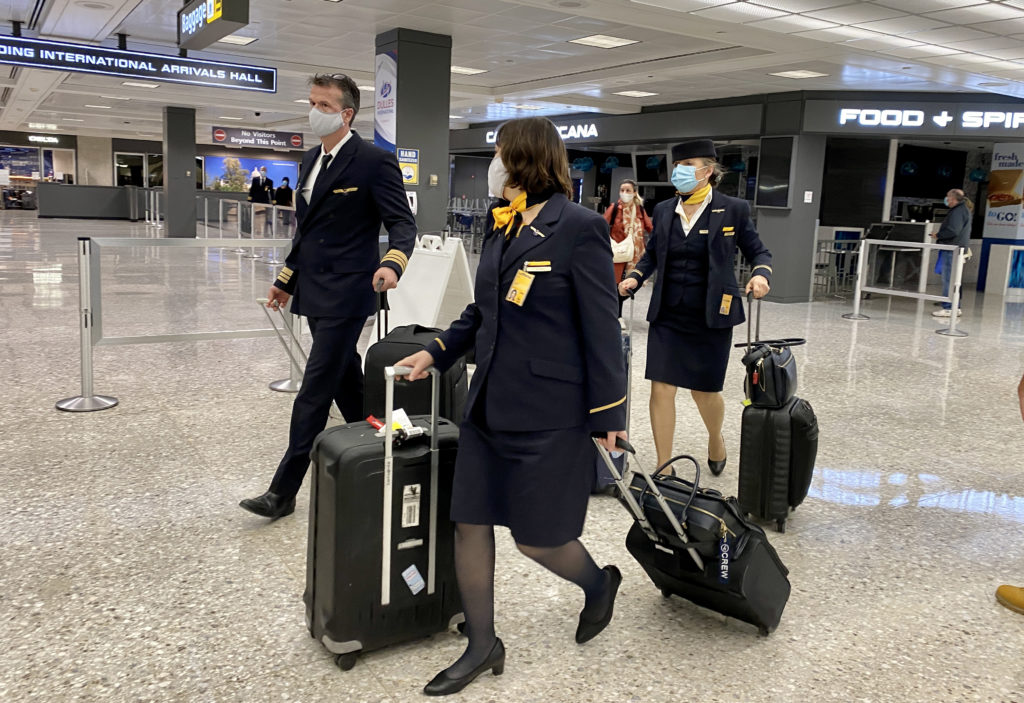Los Angeles, United States—US authorities on Thursday, November 19, 2020, urged Americans not to travel for the Thanksgiving holiday as virus cases soared in the worst-hit nation and California announced a night-time curfew aimed at curbing the surging pandemic.
America was hit by a spike of over 200,000 new infections and 2,239 fatalities — the worst death toll since May — over the past 24 hours, according to a running tally by Johns Hopkins University.
A powerful weapon against the virus could be coming soon though, as BioNTech and Pfizer planned to apply on Friday for emergency use authorisation of their vaccine in the US.
The recent surge in US cases has sufficiently alarmed authorities that they asked Americans to stay home for next week’s (November 26) Thanksgiving holiday, which normally sees millions travel to gather with their families for meals — ideal conditions for virus spread.
“It’s not a requirement. It’s a strong recommendation,” Henry Walke, a US Centers for Disease Control and Prevention doctor, told reporters.
Thanksgiving is the busiest US holiday in terms of travel, as it falls on a Thursday and many Americans take the Friday off work and make a long weekend of it.
– No US shutdown –
Despite the warning, President-elect Joe Biden did not come out for the type of national shutdown that some European nations have put back in place as cases have jumped after a summer lull.
“There’s no circumstance which I can see that would require total national shutdown. I think that would be counterproductive,” Biden, who takes office on January 20, told reporters Thursday.
US states and cities have been imposing their own restrictions, including home confinement, the closure of indoor dining and a limit on gatherings as infections soar across the country.
New York City on Thursday closed its schools — affecting 1.1 million students — but left gyms and bars open, the opposite of the virus strategy in many European cities where schools have stayed open.
California will impose a 10:00 pm to 5:00 am curfew from Saturday, with state Governor Gavin Newsom saying it was “crucial to decrease transmission and slow hospitalizations.”
President Donald Trump has been muted in his public reactions to the surge in cases, staying largely out of the public eye as he presses his unsubstantiated fraud claims in the election he lost to Biden.
Health Secretary Alex Azar told a White House briefing that the BioNTech/Pfizer application was expected Friday, confirming a timeline BioNTech co-founder Ugur Sahin shared with AFP in an interview.
“There is a chance that we can receive approval from the US or Europe or both regions this year still,” Sahin said.
“We may even start delivering the vaccine in December,” he added, “if everyone works together very closely”.
The BioNTech/Pfizer shot and another one from US firm Moderna have taken the lead in the race for a vaccine, after large-scale trial data this month showed their jabs were around 95 percent effective against Covid-19.
Trials for another vaccine, developed by Oxford University and AstraZeneca, also show it safely produces a robust immune response in healthy older people, while producing fewer side effects than in younger people, its British maker said on Thursday.
– Europe outbreaks easing –
Vaccines would be a major weapon against the virus that has killed at least 1,350,275 people and infected 56 million since the outbreak emerged in China last December, according to a tally from official sources compiled by AFP on Thursday.
After the US, the second worst-affected country is Brazil with 167,455 deaths, followed by India with 131,578 and Mexico which hit 100,104 deaths on Thursday.
But in some parts of Europe, there were signs of new restrictions imposed to halt the second wave were taking effect.
New infections in Germany have plateaued since a partial lockdown came into force in early November, officials said, even though the daily number of new coronavirus cases remains high.
France, too, has seen declines in daily new Covid-19 cases since a second nationwide lockdown began at the end of October.
President Emmanuel Macron and ministers will discuss easing some restrictions from December 1, though officials warned the country was still far from the end of its lockdown.
The virus and restrictions imposed to halt its spread continue to disrupt businesses, sports and entertainment worldwide.
Face-to-face meetings between the chief negotiators in Brexit talks were suspended on Thursday after a member of the EU team tested positive for coronavirus.
